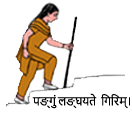Dr. Ross Petty (senior pediatric rheumatologist, Vancouver, Canada) once said,' if there is no side effect, there is no effect-size.' There is no use in taking a useless drug because it has no side effects. Similarly, it is not appropriate to avoid a drug because it has side effects. One of the most unscientific notions some patients have is that allopathic medicines do not suit them. Drugs are innumerable, each having a distinct structure, form, and function. There is no possibility that every medication among these would adversely affect a patient. Effects of a drug administered in proper dose on organ systems other than the desired one are called side-effects. For example, alendronate used for treating osteoporosis can cause swelling of the food pipe (esophagus). This esophagitis is an undesired effect of alendronate. One should take alendronate on an empty stomach with ample water and not lie down for half an hour to avoid this effect. Few side effects are more undesirable, such as nausea and hair loss due to methotrexate. A drug can have toxic effects if taken in more than the prescribed dose or for a prolonged period without medical supervision. Some people are allergic to certain medications due to immunologic aberrations. People can be allergic to 'everything under the Sun, including Sun.' Anyone can have an allergy to anything in this world. Allergy is sometimes hereditary. It is occasionally evident immediately after taking a drug or sometimes after an interval.
Side effects of drugs are of various types. Some drugs affect skin, liver, kidneys, eyes, or ears. Some drugs affect the bone marrow and reduce blood cell counts. Some medications are known to increase the risk of cancer, whereas some lead to fetal malformations. Addiction to some drugs is also known. Some drugs, such as steroids, cannot be stopped suddenly after prolonged usage. Some adverse effects are mild, whereas some can be severe and life-threatening.
Government authorities do not allow the sale of drugs that have serious side effects. As a result, some medicines are withdrawn from the market. A precautionary label is attached to a drug if any serious adverse reactions are found post-marketing. A precautionary note is also stamped when the disease-specific efficacy of a given drug is significant, and no other alternative drug is available. Significant adverse effects usually do not occur in more than 95% of patients.
